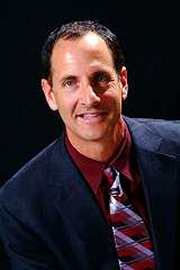
President
EEMBC BenchPress
January 2017

Topics
Debunking Ultra-Low Power and Optimizing for ULPBench To ensure consistency in our measurements, the EEMBC ULPBench specification restricts microcontroller operation to a 3V supply voltage, and hence, this is the voltage that is generated by the EEMBC EnergyMonitor. On the other hand, we allow the use of a DC-DC converter to optimize the input voltage (check out this report, for example); generally yielding significantly better results. Furthermore, most ULPBench measurements are performed at best case ambient temperatures (approximately 25 degrees C) - again to ensure a consistent environment. Obviously, energy conditions worsen as the temperature goes up. STMicroelectronics’ Video Explains ULPBenchSTMicroelectronics has produced a video explaining the basics of EEMBC ULPBench (starting at the 1:24 mark). Ok, I admit there is definitely marketing in there and the narrator sounds like a robot, but the video presents some interesting energy data (most of which hasn’t been certified by the EEMBC Technology Center). Renesas RX65N CoreMark Results Highlight Compiler EfficiencyNot many microcontroller or processor vendors develop their own compilers these days. Renesas is one exception, and they do a decent job at it, at least judging by their recent EEMBC CoreMark results. The CoreMark benchmark has been out since 2009, so what makes this more interesting is that compiler guys (including IAR, Green Hills, and even GCC) are still finding ways to make it go faster (and still be applying legitimate modifications that will benefit real-world applications). These compiler improvements for the recent scores came about by Renesas engineers who are quite familiar with the RX CPU’s architecture (dual-issue pipeline, DSP instructions, no wait states on Flash) yielding a score of 4.62 and 4.34 CoreMark/MHz at 50MHz and 120MHz, respectively. Myths About Embedded Benchmarking?“Benchmarks are not representative of real-world applications.” “Benchmarking security for IoT applications is impossible.” Are these truthful statements or myths? Read the article “11 Myths About Embedded Benchmarking” and find out the answer. It’s not a myth that I thank the following individuals for contributing to this article - Mark Wallis (system architect at STMicroelectronics), Dave Edwards (founder and CEO of Somnium Technologies), Troy Vackar (manager, applications engineering at Ambiq Micro), Joseph Yiu (senior embedded technology manager at ARM), Rajiv Adhikary (senior software engineer at Analog Devices), Brent Wilson (director of applications engineering at Silicon Labs), Xiaoning Qi (CEO of C-Sky), Ruud Derwig (senior architect at Synopsys), and Paul Teich (principal analyst at TIRIAS Research) On Location With EEMBCEEMBC@Linley Cloud Hardware Conference 2017 EEMBC will exhibit at this one-day conference, covering system design for cloud computing and networking. February 8, 2017. Hyatt Regency Hotel, Santa Clara, CA. Free registration for qualified attendees.EEMBC@Embedded World 2017 EEMBC and partners will deliver some exciting presentations at the 2017 Embedded World Conference, taking place from March 14-16 in Nuremberg, Germany. The biggest and best embedded event on the planet.
EEMBC Expands its In-house Testing ServicesThe EEMBC Technology Center benchmark testing services include porting the benchmarks to the target platform(s), running the benchmarks and reporting scores, comparing different hardware platforms and different hardware configurations, and comparing different tool chains and different optimization options. Read more… If you do not wish to receive e-mail from EEMBC, you can un-subscribe. EEMBC sends no more than one e-mail per month to registered users at www.eembc.org. Continuing your subscription ensures you'll be notified when new scores and other important announcements are available. |